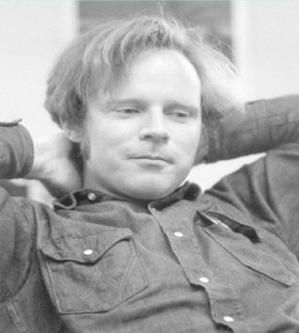In computing, a compiler is a computer program that translates computer code written in one programming language into another language. The name "compiler" is primarily used for programs that translate source code from a high-level programming language to a low-level programming language to create an executable program.

Sir Charles Antony Richard Hoare is a British computer scientist who has made foundational contributions to programming languages, algorithms, operating systems, formal verification, and concurrent computing. His work earned him the Turing Award, usually regarded as the highest distinction in computer science, in 1980.
Alfred Vaino Aho is a Canadian computer scientist best known for his work on programming languages, compilers, and related algorithms, and his textbooks on the art and science of computer programming.

Alan Jay Perlis was an American computer scientist and professor at Purdue University, Carnegie Mellon University and Yale University. He is best known for his pioneering work in programming languages and was the first recipient of the Turing Award.

Robert W Floyd was a computer scientist. His contributions include the design of the Floyd–Warshall algorithm, which efficiently finds all shortest paths in a graph and his work on parsing; Floyd's cycle-finding algorithm for detecting cycles in a sequence was attributed to him as well. In one isolated paper he introduced the important concept of error diffusion for rendering images, also called Floyd–Steinberg dithering. He pioneered in the field of program verification using logical assertions with the 1967 paper Assigning Meanings to Programs. This was a contribution to what later became Hoare logic. Floyd received the Turing Award in 1978.
ALGOL 60 is a member of the ALGOL family of computer programming languages. It followed on from ALGOL 58 which had introduced code blocks and the begin and end pairs for delimiting them, representing a key advance in the rise of structured programming. ALGOL 60 was the first language implementing nested function definitions with lexical scope. It gave rise to many other programming languages, including CPL, Simula, BCPL, B, Pascal, and C. Practically every computer of the era had a systems programming language based on ALGOL 60 concepts.
David A. Turner is a British computer scientist. He is best known for designing and implementing three programming languages, including the first for functional programming based on lazy evaluation, combinator graph reduction, and polymorphic types: SASL (1972), Kent Recursive Calculator (KRC) (1981), and the commercially supported Miranda (1985). Miranda had a strong influence on the later Haskell.

Friedrich Ludwig "Fritz" Bauer was a German pioneer of computer science and professor at the Technical University of Munich.
Eric "Rick" C. R. Hehner is a Canadian computer scientist. He was born in Ottawa. He studied mathematics and physics at Carleton University, graduating with a Bachelor of Science (B.Sc.) in 1969. He studied computer science at the University of Toronto, graduating with a Master of Science (M.Sc.) in 1970, and a Doctor of Philosophy (Ph.D.) in 1974. He then joined the faculty there, becoming a full professor in 1983. He became the Bell University Chair in software engineering in 2001, and retired in 2012.
John Edward Lancelot Peck was the first permanent Head of Department of Computer Science at the University of British Columbia (UBC). He remained the Head of Department from 1969 to 1977.

Clifford Seth Stein, a computer scientist, is a professor of industrial engineering and operations research at Columbia University in New York, NY, where he also holds an appointment in the Department of Computer Science. Stein is chair of the Industrial Engineering and Operations Research Department at Columbia University. Prior to joining Columbia, Stein was a professor at Dartmouth College in New Hampshire.

Programming language theory (PLT) is a branch of computer science that deals with the design, implementation, analysis, characterization, and classification of formal languages known as programming languages. Programming language theory is closely related to other fields including mathematics, software engineering, and linguistics. There are a number of academic conferences and journals in the area.
Thomas Stephen Edward Maibaum Fellow of the Royal Society of Arts (FRSA) is a computer scientist.
The following outline is provided as an overview of and topical guide to computer programming:
Douglas Taylor "Doug" Ross was an American computer scientist pioneer, and chairman of SofTech, Inc. He is most famous for originating the term CAD for computer-aided design, and is considered to be the father of Automatically Programmed Tools (APT), a programming language to drive numerical control in manufacturing. His later work focused on a pseudophilosophy he developed and named Plex.
Edward Joseph McCluskey was a professor at Stanford University. He was a pioneer in the field of Electrical Engineering.

In computing, a compiler is a computer program that transforms source code written in a programming language or computer language, into another computer language. The most common reason for transforming source code is to create an executable program.
Yanhong Annie Liu is a computer scientist and professor of computer science at Stony Brook University where she works on new programming languages, software systems, algorithms, program design, optimizing, analysis, and transformations, intelligent systems, distributed computing systems, and computer security.






